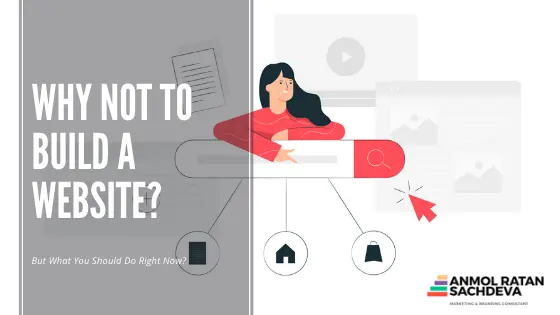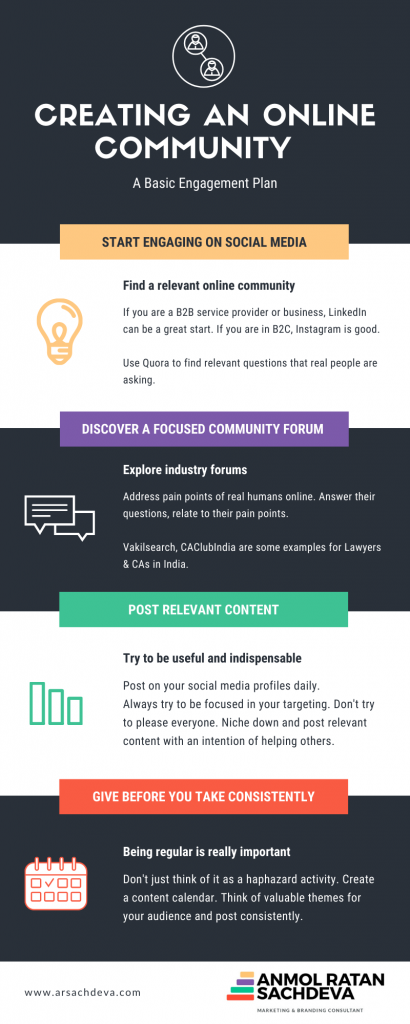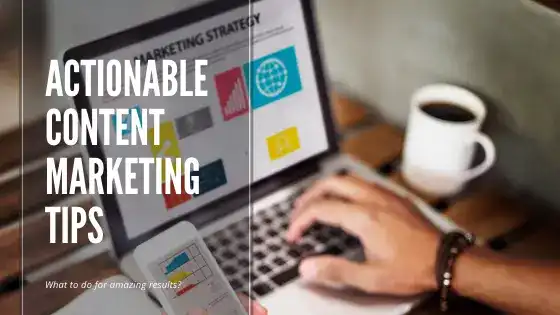Why you shouldn’t launch your website right away? (And what should you do instead)

When Raj first saw a Facebook advertisement from a leading web development company on his newsfeed, he became elated.
The ad told him how he needed a website to boost his business.
He was quick to approach the company, and in a month, his website was ready.
Once his website launched, he realized that the battle is not over.
Without an audience to announce his website to, he soon understood that he brought a white elephant home.
After the initial support and basic marketing tips, even the development guys didn't know how to help him grow his business.
Website development, hosting, domain name charges and then the fee of the web development company costed him a significant sum.
Now he knew what mistake he did as he had almost negligible traffic to his website even after he tried different tactics.
Do you know what mistake did he make?
He forgot to factor in the importance setting the right expectations and warming his audience before planning the launch.
These days, websites are easy to launch. Almost every business owner wants to have a website. They feel that is something that will push them into the digital domain.
Many also feel that it is all that they need to do for becoming the next Amazon - to be in the big league.
But not everyone gets even 0.000001% traction of what they expect in the initial days.
Do you know why? Because they don't set their goals right.
Scaling the First Frontier- Finalizing a SMART Goal
While many would say, "Build a website and then we will think of marketing the website." I believe in a different school of thought.
I always believe in setting the expectations and goals right from the beginning.
First, you will have to think about the strategy - about how you will use your website, what purpose would it solve in your business plan.
And the purpose or goal should always be a SMART goal.
You know SMART goals, right? No? Let me give you a gist.
A SMART goal is:
- Specific
- Measurable
- Achievable
- Realistic
- Time-bound
Now when I say that your goal from your website should be SMART, you need to answer questions like:
- What will you want your website to do? - Bring more leads, create brand awareness, engage your audience or something else
- How will you measure the success? - Creating KPIs to measure the performance or some other way
- Is the goal even achievable and realistic? - Trust me when I say people are always over optimistic about the digital world
- Do you have a fixed time period to achieve your goals? - say 1 month, 3 months, 5 months, etc.
Don't just say that you want more business to come in three months.
Instead fix a sum say 100 leads in 30 days. Build a system to measure the performance of each investment on your website and then think of moving ahead.
Now we have set the basic precedent right, let's move ahead to the next discussion about generating interest and building your audience.
Build a Community to Warm Up your Audience
You must know that no one likes being ‘sold to’ in this digital world. No matter how big the online opportunity seems, but the buyers are smarter than ever nowadays.
They quickly realize the intention of a business or a seller.
That's where the mistake happens. Most entrepreneurs like Raj are always in a rush to make sales through online means, even if it means pushing their limits.
Remember, in 2020, the most important keyword is 'VALUE'. And no, I am not talking about SEO keyword, but the philosophy by which you should move ahead.
Before asking anything from a prospect, make sure to give immense value to your audience.
This can be in the form of free advice, tips or any form of engagement.
When you seem helpful, people are more inclined to trust you, even when you are making a sales pitch.
Take the example of a sales telecaller who calls you to sell insurance policy, car loan or credit card.
He is trying to make a sale here. But do you trust him? No. Right?
Why? Because he seems to be interested in just making a sale without understanding if it is beneficial for you or not.
If you launch your website and just think of making a sale, you might get short term benefits, but you can't think of building a long-term brand.
The key here is to warm up the audience and build a community that trusts you for your experience and knowledge first.
Steps to Build a Community for Your Brand Launch Online- A Basic Engagement Plan

- Engage in a Dialogue through Social Media
Well, as said earlier, you need to build a following and garner interest about what you offer.
And it should not be all about you always. Say for example, you cannot talk of how good your business is or how better you are.
The better strategy would be to show rather than telling.
Now how do we do that?
Well, by sharing tips, helping your target audience achieve their goals and solving their pain points.
You would say, “How should I write? I am no writer.”
I am not saying you need to be your best, the whole point in making others believe that you are a genuine person.
And I think you can always share your experience as an entrepreneur or an authority in your domain.
To start with, go to Quora.com and see what others are asking about your industry of business (Don't think your industry is unique and no one would have any questions.)
Everyone is seeking for answers online. If not Quora then check Answer the Public for ideas to talk about your industry, product or service.
Now think of the best platform to engage interested people - for B2B you can think of LinkedIn. For B2C you can think of Instagram.
Start posting content and most importantly, start engaging with content posted by others. When you are visible daily by same set of people, they start recognizing you.
And if you top your consistency with value-based insights, they would start listening to you and even following you.
Eventually, this would help in generating inbound leads and subsequently also help you when you launch your website.
- Be Active on Community Forums
Just like you go on social media, start exploring community forums. If you are a lawyer, think about vakilsearch.com for example. If you are a CA, think about caclubindia.com.
If you are not a specialized person, think of industry forums. I believe the internet has some or the other for every business and industry.
Start engaging with people on the forums. Address their pain points by your knowledge and build engagement.
Once people start trusting you, they would come to you with proposals to subscribe to your paid services or buy your products.
3. Post Relevant Content. Guide & Help People Online. Be Consistent
I said before, “Give before you start asking.”
As a small business or a bootstrapped startup with limited funds, the biggest value you can offer to others is your knowledge or insights.
All you need is a plan to get out word about how useful you are, how valuable your insights are and how your product/service can answer other's pain points.
By showing up daily, being relevant and helping others every day, you will slowly build a community who will be your brand ambassadors. And there is nothing better than word of mouth, even in the 21st century.
Wrapping Up
I know the strategy or suggestion I gave is extremely controversial because you have been hearing about launching your website as soon as possible.
But trust me, if you build your audience a bit earlier than launching your website or a marketing campaign online, you will be able to get better ROIs in the future.
You don't want your website to be sitting in the backseat with zero activity or traffic when funds are tight already.
Think of your website as an investment that can both turn into an asset or a liability. What do you want it to become?
I am sure, a self-growing asset sounds much more lucrative, right? So, give it the fuel of engaged audience before trying to kick start the engine of business growth.
Interested in implementing this in reality? Let’s get on a call and discuss what can we achieve for your digital growth.



